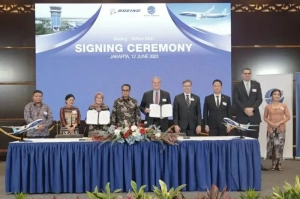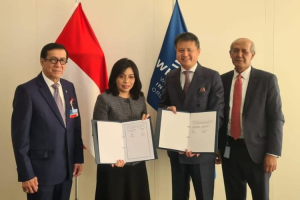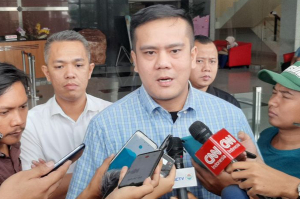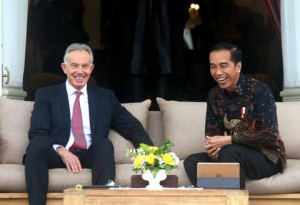J&T Express unveils its approach in navigating through Indonesian investment regulations raising legal concerns
J&T Express boldly discloses its innovative approach to circumventing foreign investment regulations in Indonesia, raising legal questions and concerns among local legal experts.
This revelation is found within the company's prospectus, where they acknowledge potential regulatory risks due to Indonesia's Negative Investment List (DNI), which restricts foreign ownership within the courier sector to 49%.
In their prospectus, J&T Express clarifies its commitment to compliance by registering PT Global Jet Express, the entity representing J&T Indonesia, as an onshore company (PMDN).
They transparently describe conducting business through affiliated entities, Indonesian corporations, and domestic subsidiaries.
The company further emphasizes contractual agreements with local parent corporations and individual shareholders, demonstrating their dedication to adhering to Indonesian regulations.
This approach affords J&T Global effective control over affiliated consolidation entities in Indonesia. It includes economic benefits and options to purchase all shares in the Indonesian company, subject to local law allowances.
It's worth noting that PT Global Jet Express, registered under the Directorate General of Legal Administration (AHU) at the Ministry of Law and Human Rights, holds the status of a PMDN company.
However, it differs from the prospectus, as the company is entirely owned by Winner Star Holding Ltd., which is subsequently owned by Onwing Global Limited.
J&T Global Express Limited is identified as the company's owner, with the majority shareholder being Jet Lie Lie, the company's founder.
Frank Alexander Hutapea, a partner at Hotman Paris & Partners, provides his perspective on this matter. He highlights the significance of Article 33 of the Investment Law and Article 12 of the Postal Law, both of which prohibit business actors from entering into agreements using someone else's name.
Frank calls upon relevant ministries to clarify whether these actions violate existing regulations, requesting relevant ministries to confirm whether this action violates investment laws and the usage of nominee through contractual arrangement is prohibited or not.
Meanwhile, Budiyanto Darmastono, Deputy Chairman of the Association of Indonesian Goods Delivery Service Companies (ASPERINDO), assessed that J&T's actions had violated investment regulations in Indonesia, where foreign company ownership should be a maximum of 49%. This demonstrate that J&T is a foreign investment company (PMA) that carries out logistics activities in areas where it should not be.
"Courier PMA companies are not actually allowed to operate at village level. They should only operate up to international airports and then shipments must be given or continued by local courier companies," said Budiyanto.
Business licenses in Indonesia are granted by the Indonesia Investment Coordinating Board (BKPM), led by Minister of Investment Bahlil Lahadalia. Meanwhile, the courier industry is regulated by the Ministry of Transportation, headed by Minister of Transportation Budi Karya Sumadi.
Neither the BKPM nor the Ministry of Transportation has responded to inquiries regarding J&T Express's business permit.
Right now, Indonesia serves as the first market for J&T Express. The company has since expanded its operations through partnerships with various e-commerce platforms, providing logistics services to Alibaba Group's Taobao, Shein, and ByteDance's TikTok. However, it is noteworthy that half o
Already have an account? Sign In
-
Start reading
Freemium
-
Monthly Subscription
30% OFF$26.03
$37.19/MonthCancel anytime
This offer is open to all new subscribers!
Subscribe now -
Yearly Subscription
33% OFF$228.13
$340.5/YearCancel anytime
This offer is open to all new subscribers!
Subscribe now






